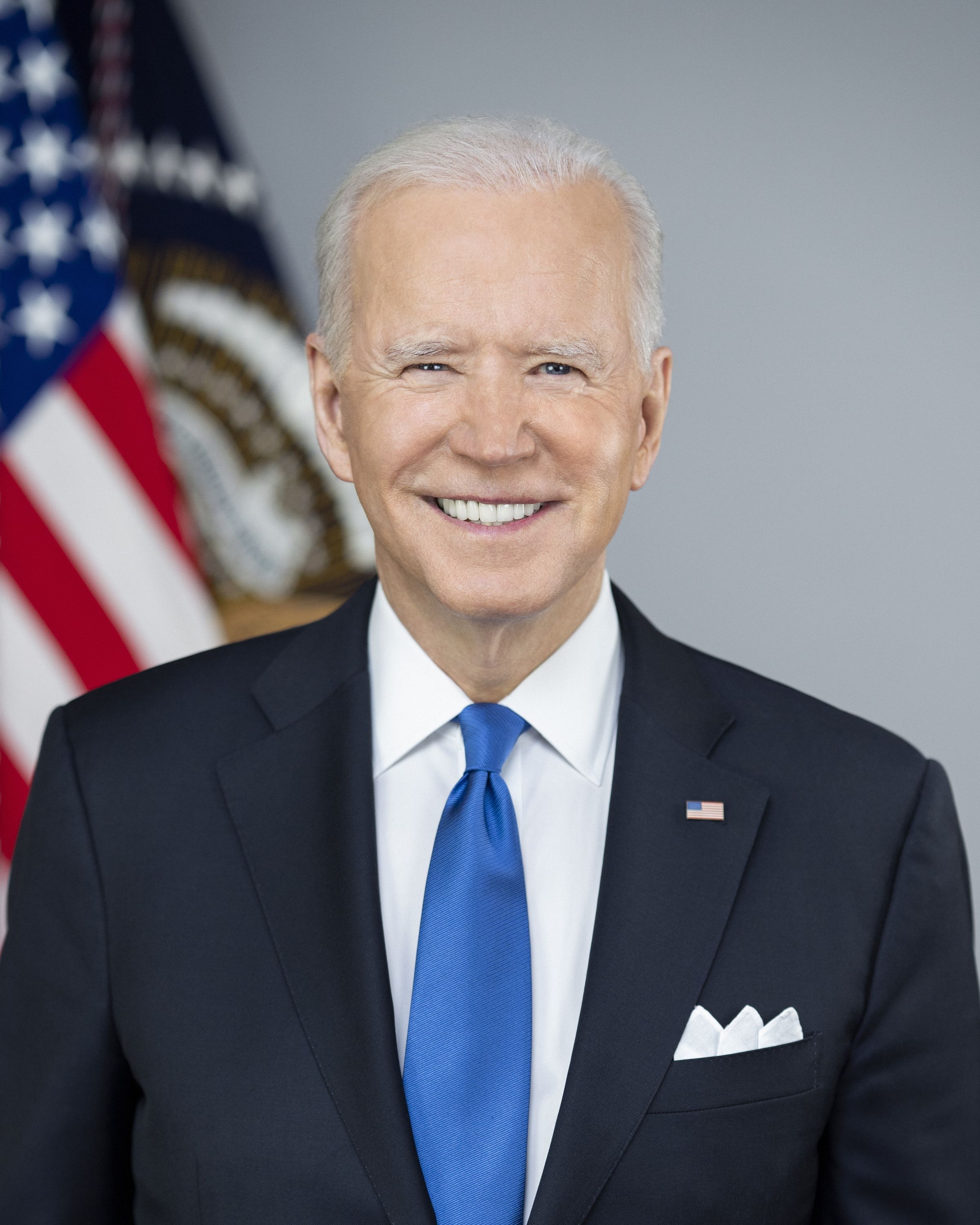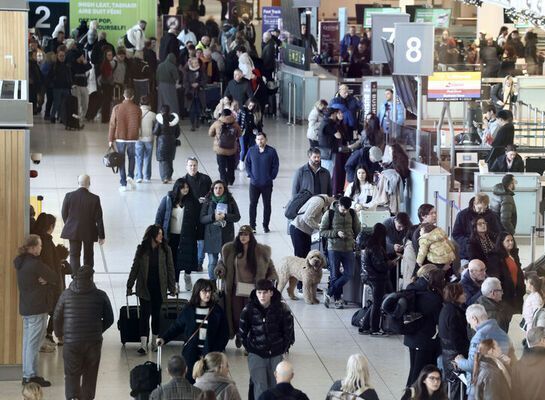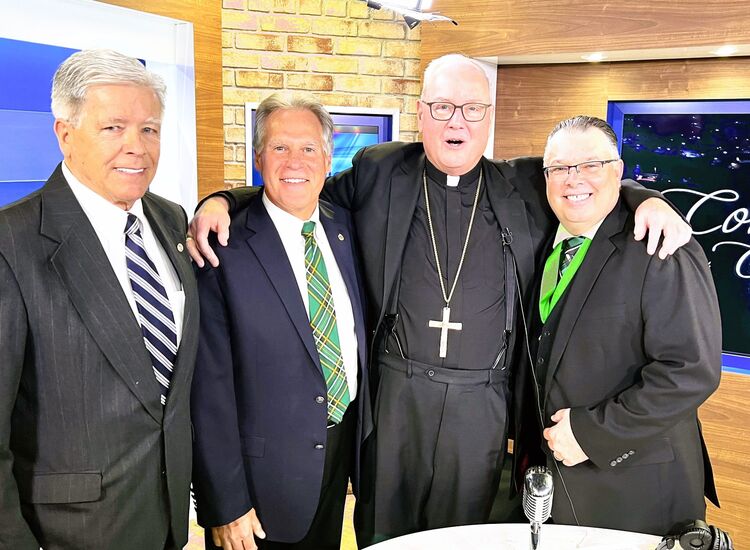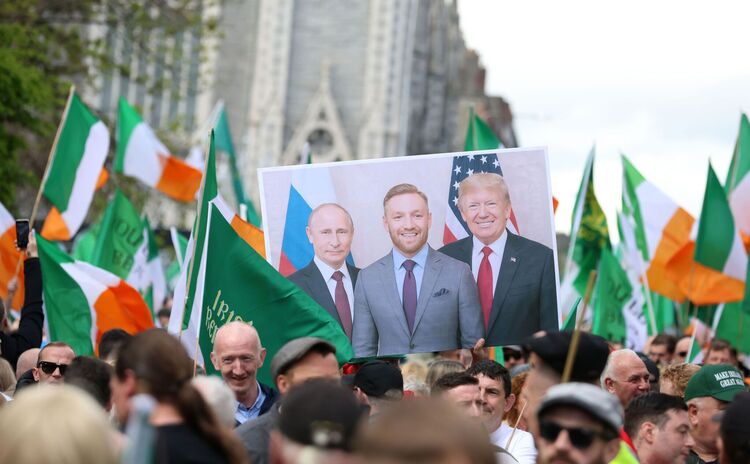The word is about that the Biden administration is getting ready to appoint a U.S. Envoy to the Northern Ireland Peace and Political process after Christmas.
It is indeed time once again for a steadying American hand in the persona of an envoy.
Indeed, it has been time for some time.
Not long after Biden's arrival in the White House former congressman Bruce Morrison indicated a willingness to take up the envoy post.
Morrison's public embracing of the job, a post that he is absolutely qualified to fill, raised expectations of a quick move by the Biden administration in its earliest days
But no move.
In fairness to the Biden administration, to Congress, to he United Staes generally, the absence of an envoy has not led to an absence of interest or involvement in events on the other side of the Atlantic.
President Biden himself has been engaged. So has Secretary of State Antony Blinken, Speaker Nancy Pelosi, Senator Chuck Schumer, and members of the House of Representatives from both parties.
And yet, there is nothing like having somebody applying himself or herself to the peace and political process full time; in other words an envoy.
If nothing else an envoy would make sure that if President Biden visits Ireland on or about the 25th anniversary of the Good Friday Agreement next April he would do so with the agreement still intact and with progress having been achieved on the thorny issues of the Protocol and the border.
U.S. envoys have been central to the preservation of the Good Friday Agreement since its inception, which was in large part due to the work of President Bill Clinton's envoy, Senator George Mitchell.
The George W Bush administration followed up with a man holding considerable expertise in the foreign policy field, Dr. Richard Haass.
Haass, head of the State Department’s policy and planning office, was even given ambassadorial rank by the U.S. Senate and promptly went about his business cramming ten meetings with British, Irish, and Northern Irish representatives while on a short visit to London – this as the Bush administration was still measuring the drapes at the White House.
Not that all was just a mirror image of the Clinton administration’s ministrations in the North. The White House would not refer to Haass as an envoy, or special envoy. He was America’s “special point person.”
Outside 1600 Pennsylvania Avenue everyone called Haass an envoy.
Whatever he was called, Haass performed well at his task at a time when there was considerable agitation at Stormont. Sounds familiar?
At the end of 2003, Haass was succeeded as point person/envoy by Dr. Mitchell Reiss.
As with Richard Haass, Reiss had directed policy and planning at the State Department. Like Haass, he was accorded the rank of ambassador when he set off for Northern Ireland.
Reiss continued in the job until 2007 and for the final couple of years of the Bush presidency the envoy position was filled by another experienced diplomat, Paula Dobriansky. She would be envoy number four.
When Barack Obama was elected president the expectation was that the envoy post would be maintained.
But more than Obama it was Hillary Clinton who had the street cred when it came to Northern Ireland. With Clinton in the State Department, Declan Kelly would serve as Economic Envoy from September 2009 until May, 2011.
Following Kelly's departure there was something of a hiatus, though always a sense that Hillary Clinton was keeping an eye on things.
Clinton departed State in 2013, however, and once again Irish American brows became furrowed.
Her successor, John Kerry, poured balm and with his appointment of former senator and presidential candidate Gary Hart as his personal representative, effectively restored the envoy position, though Hart’s portfolio was often described in more nuanced terms as being an observer to the peace process. Observe he did, sometimes from right up close and, like his predecessors.
Hart would take his leave with the change in administration in January 2017, but came back into view when he condemned the plan by then Secretary of State Rex Tillerson to abolish the North envoy job as “a sad, even tragic, decision.”
Hart said the scrubbing of the envoy role came at a critical time in Northern Ireland when it had no devolved government and there was uncertainty over Brexit.
Specifically with regard to Northern Ireland, Tillerson proposed, in a letter to Senator Bob Corker, chairman of the Senate Foreign Relation Committee, that the role of “Personal Representative for Northern Ireland Issues” be “retired”.
If nothing else, the envoy posting went out with a longer job title.
Tillerson wrote Tennessee’s Corker that “the 1998 Good Friday Agreement has been implemented with a devolved national assembly in Belfast now in place.”
As the Irish Times noted at the time, no reference was made to the collapse of the power-sharing assembly.
Irish America did hot go quietly into the night. Demands for an envoy persisted and in the final year of his term President Trump appointed Mick Mulvaney to the job. Mulvaney was known by the title of special envoy.
Irish America credits the U.S. intervention in Northern Ireland as being the game changer that led to an end of the Troubles and the emergence of devolved, power sharing government.
Intervention comes in multiple forms. One of those forms is an envoy. Hopefully we will have such a person before the year is out.








